Problems Growing Tomatillos – What To Do When Tomatillos Are Too Small
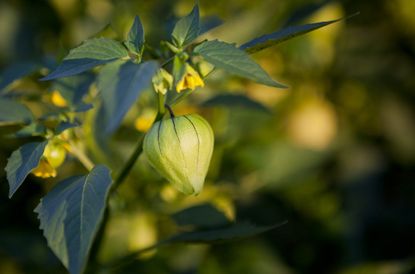
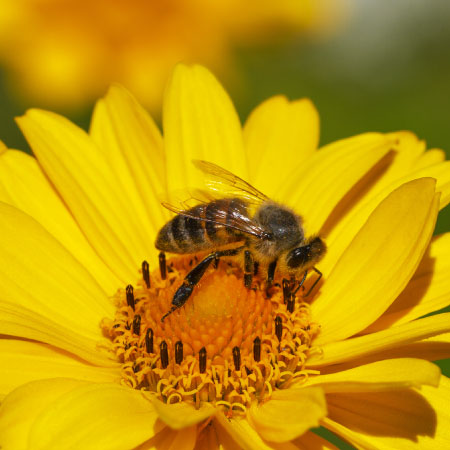
Problems with tomatillos are often the result of poor pollination. If your tomatillos are small or if you have empty husks, we have the solution! Read on to find answers for undersized tomatillos.
Reasons for Small Tomatillo Fruit
It takes several grains of pollen to properly pollinate a tomatillo flower. The wind might blow around a few grains of pollen, but tomatillo pollen is heavy, and it takes a strong insect to move the pollen efficiently. This is where bees come in. Bees are by far the most efficient pollinators of tomatillo flowers. They have no trouble hefting around the heavy grains, but first, they must find the flowers. Intermingling flowers, herbs, and fruit that bees love with vegetables that need the bees' attention often solves the pollination problem. If the bees are finding your garden and you are still getting small fruit (or none at all), however, it's time to look at other reasons for undersized fruit. As temperatures rise above 85 degrees F. (29 C.), the flowers aren't able to form fully functional reproductive parts—particularly anthers and pollen. This causes fewer and smaller tomatillos. Since there isn't anything you can do about the weather, you'll have to wait until conditions improve. Next year, try adjusting the planting time so that the pollination season occurs during cooler temperatures. Just as people feel more heat stress when the humidity is high, so do tomatillo plants. Relative humidity between 60 and 70 percent is ideal. When the humidity climbs to above 90 percent, pollination and fruit set drops off, resulting in tomatillos that are too small. High humidity in combination with high temperatures can completely prevent pollination, and you'll get no fruit at all. There are a couple of other considerations. Tomatillo plants can't pollinate themselves. This means that you'll have to plant at least two in order to get fruit. It's common to see empty husks where there is no other plant nearby. In addition, you should avoid using insecticides when you are depending on bees to pollinate your plants. Specifically, avoid using contact insecticides during the day when bees are flying. Never use systemic insecticides or those with a residual or lingering effect.
Gardening tips, videos, info and more delivered right to your inbox!
Sign up for the Gardening Know How newsletter today and receive a free download of our most popular eBook "How to Grow Delicious Tomatoes."

Jackie Carroll has written over 500 articles for Gardening Know How on a wide range of topics.
-
 Urban Composting Guide: How To Compost In The Middle Of The City
Urban Composting Guide: How To Compost In The Middle Of The CityUrban composting does not have to be daunting. You can compost in the city, and maybe even try some urban worm composting!
By Mary Ellen Ellis
-
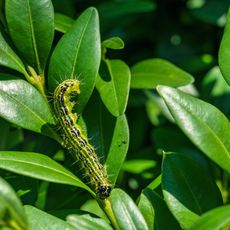 Shrub Diseases And Pests To Watch Out For
Shrub Diseases And Pests To Watch Out ForShrub diseases and pests can be challenging. Learn how to recognize and eradicate them before they can present a danger to your plants.
By Susan Albert
-
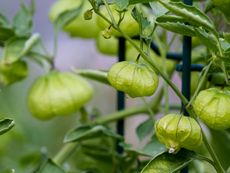 Tomatillo Pruning: How To Prune Tomatillo Plants
Tomatillo Pruning: How To Prune Tomatillo Plants"Can I prune a tomatillo plant?" This is a common question among many new tomatillo growers. Learn more about the support and pruning of tomatillos in the garden by reading the article that follows.
By Jackie Carroll
-
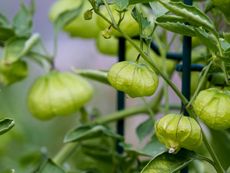 Empty Tomatillo Husks - Why Are There No Tomatillo Fruit In Husk
Empty Tomatillo Husks - Why Are There No Tomatillo Fruit In HuskWhen all goes well, tomatillos are hugely prolific, and just a couple of plants can provide plenty of fruit for the average family. But what happens when husks are empty? Find out in this article.
By Jackie Carroll
-
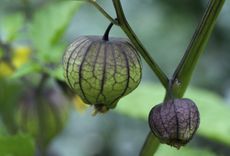 Harvesting Tomatillo Fruits: How And When To Harvest Tomatillos
Harvesting Tomatillo Fruits: How And When To Harvest TomatillosGrowing and harvesting tomatillo fruits will enhance your culinary range and provide nutrients and variety to your diet. But when and how do you harvest tomatillos from your garden? Find out in this article.
By Bonnie L. Grant
-
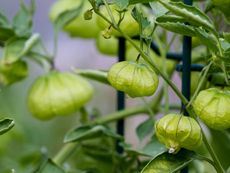 Growing Tomatillo Plants In Your Garden
Growing Tomatillo Plants In Your GardenIf you've ever seen one, you probably wonder, "What is a tomatillo?" Tomatillo plants are native to Mexico. Read this article to learn more about these plants and get tips for growing tomatillos in the garden.
By Kathee Mierzejewski